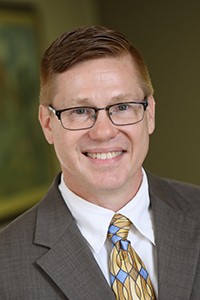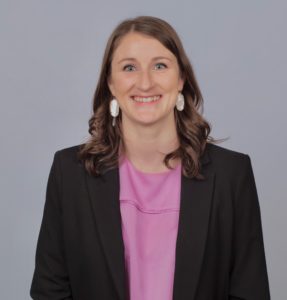Going without baptisms, funerals, weddings and other milestone ceremonies during the COVID-19 pandemic has led pastors and laypeople into some unfamiliar territory.
“Actually, the word ‘bizarre’ does not sum it up,” said Erica Whitaker, the senior pastor of Buechel Park Baptist Church in Louisville, Kentucky.

Erica Whitaker
Robbed of the rituals that help create and support Christian fellowship and identity leaves clergy and congregations groping through “a gray fog over the image of God,” she said.
“If we cannot gather together for those rites of passage, then how can we be in community together?”
‘An unfortunate loss’
It’s a question many people of faith are asking. Plus, there are growing concerns about the long-term emotional and spiritual impact that ritual deprivation may have on emotional and spiritual development.
One clue to the importance of rites of passage is they are found in every culture and religion, according to Baylor University sociologist Kevin Dougherty.

Kevin Dougherty
A rite of passage is any ceremony that marks a change or advancement in a person’s social, religious, educational or other status, he explained.
Those common in the United States include baptisms, weddings, funerals, and high school and college graduations. Graduation from military boot camp is another example.
The rites are social and individual in nature, Dougherty added.
“They are social in that they are not done by individuals for themselves. They bring together a community to celebrate individuals’ transitions from one state of life to another.”
The interruption or loss of these rites can disrupt the individual and group identity. “It’s an unfortunate loss for us as a society to not be able to gather physically together to celebrate these transitions.”
‘A mass of baptisms’
It’s difficult to predict long-term impacts, but some of the immediate consequences are clear, said Greg DeLoach, the interim dean at Mercer University’s McAfee School of Theology in Atlanta.
“There is a toll that has yet to be determined,” he said. “Right now, the impact is disappointment.”
Some of the greatest pain and disappointment stem from funerals that are being canceled, rescheduled or held with grief-multiplying social distancing requirements, DeLoach said.

Greg DeLoach
“Not having the space to properly grieve, in an era when touching is ‘bad,’ is most tragic. It is one of the times when the loving touch is most needed, as are the hugs and assurances of an embracing community.”
But there is heartache to go around. Children are prevented from traditional summer experiences.
“Talk about rituals. Summer camps and VBS have been put on hold,” he said.
Baptisms are postponed, as well.
“People are really ready to celebrate these things again, but they are still very cautious,” DeLoach said. “There’s no way you can put these things on the calendar. Six months from now we are going to have a mass of baptisms.”
‘They need an in-person recognition.’
Emily Harbin has seen two important transitions put on hold: her spring graduation ceremony at McAfee School of Theology and her ordination to ministry. Both were to be held earlier in May.
Harbin, the minister to students and young adults at First Baptist Church in Athens, Georgia, said she’s grateful McAfee rescheduled the graduation for August.
“It will be an intimate confirmation that I have found my place,” she said.

Emily Harbin
And she is looking forward to being ordained when that ritual, with its laying-on-of-hands moment, is considered safe again: “Whenever I am able to experience that, it will be wonderful.”
But as a minister to youth, Harbin said has seen first-hand the disappointment her students have experienced due to canceled high school graduations.
“Getting to graduation is such a long process – 13 years of school to get there,” she said. “Graduation is such a pivotal movement for them, and so they have really felt the significance of the cancellations.”
It’s why First Baptist decided not to cancel its annual Graduate Sunday event, or hold it virtually.
“It’s so important to them,” Harbin said. “They need an in-person recognition that they have graduated from high school.”
‘Am I doing anything I was called to do?’
The pandemic is leading to innovation, where possible.
Whitaker said her congregation, when it comes back together physically, will offer communion in pre-packaged cups placed in Ziplock bags a week before distribution.
“At the end of the worship gathering each person will take a bag and partake at home.”
Having to embrace such solutions is difficult to swallow, she said.
“What is the purpose of church if we can’t come together at the table and to break bread and partake of the cup?” she said.
“And I haven’t figured out what I am going to do for baptisms yet because it’s such an intimate experience.”
Altogether, it’s as if the body of Christ has experienced an injury.
“It’s creating this very painful situation,” Whitaker said, acknowledging that her own pain is undeniable.
“I have to ask myself: am I doing anything I was called to do when I became a pastor?”
Read more BNG news and opinion related to the coronavirus pandemic:
#intimeslikethese
